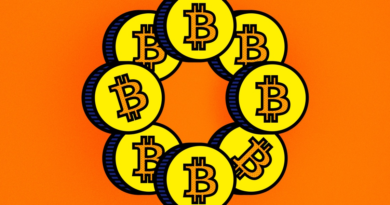The struggling toymaker behind Dungeons & Dragons and Play-Doh is banking on middle-aged shoppers as the 'heart and soul' of its business'
Hasbro has over decades become synonymous with anything related to toys and games—whether that’s for families playing Monopoly or for toddlers obsessed with Play-Doh clay. There’s something for everyone, and that’s helped the company achieve its success over the years.
But now, as Hasbro faces a challenging time with consumers pulling back on spending, it is having to tweak its strategy to be the go-to games company. And Hasbro CEO Chris Cocks sees opportunities to do that in one key area: among loyal toy-collecting adults.
“As they are becoming adults, a lot of people become more intense in their loyalties toward brands nurtured when they were kids,” Cocks told the Wall Street Journal in an interview published Friday, referring to the “kidult” category.
He added that about 40% of Hasbro’s annual revenue comes from those 18 and older—a number he sees expand to 50% in the next five years.
“The heart and soul of our adult fan business is delivering to 30, 40, 50-plusers the toys of their dreams from when they were kids,” Cocks said. He noted that with some popular games, people started early and continued playing well into their middle age.
“With Dungeons & Dragons, most people start playing at the age of 11 or 12 and never stop playing even when they are a 49-year-old CEO of a company like me. I still play about once a month,” Cocks said.
Kidults are typically aged 12 and above, and account for a majority of the toy industry’s dollar spending, according to market research firm NPD Group. The age group of 18 and older makes up a fast-growing segment—between September 2021 and 2022, this demographic within toy-shoppers grew 19%.
“The definition of adulthood has definitely evolved,” Jeremy Padawer, chief brand officer at toy company Jazwares, told CNBC in December. “What it used to mean, to be an adult, was to be a very upstanding, serious member of society. And to do that you had to demonstrate it intellectually, emotionally, in every other single way. Now we feel a lot more free to express our fandom as a part of our adulthood.”
Tough times
Despite the age-defying interest in many of its products, the Dungeons & Dragons maker has not had it easy in recent months.
It reported downbeat results for 2022 as inflation and a slowing economy bit into holiday-season spending by Hasbro customers. The company’s revenue fell 9% in 2022, while some of its competitors made big gains. Price increases over the pandemic also impacted demand for toys and games, and the company lost a key licensing deal to Barbie-maker, Mattel. Hasbro laid off 1,000 people earlier this year in a cost-cutting effort after some parts of its digital business underperformed in 2022.
“We lost sight of play, the center pillar of Hasbro, and underinvested in our core toy business. Because of that, our innovation flywheel wasn’t spinning as fast as our competition’s,” Cocks told the Journal, adding that the loss of market share within the toy industry was among Hasbro’s biggest challenges. The toy giant also needs to find a way to set itself apart from companies like Mattel, which could make big profits with the July release of a new Barbie movie amid great fanfare.
But Cocks maintains that he is confident Hasbro will capitalize on its existing market and lineup of products to bounce back. Just last month, the toymaker announced a 24-hour streaming channel dedicated to Dungeons & Dragons.
“We’ve had a long history of adapting our brands for the way people play—whether it’s a physical toy, a show that people watch, a movie they go to theaters for, or a game,” Cocks said.
Hasbro reported strong first-quarter results for the first three months of 2023 after “Magic: The Gathering,” a trading card game, helped lure customers to the company’s products.
Hasbro did not immediately return Fortune’s request for comment made outside regular hours of operations.


